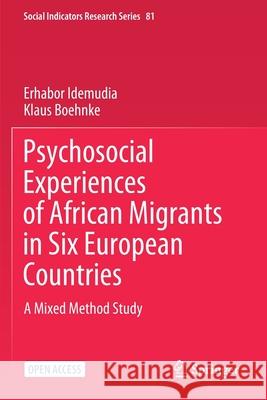Psychosocial Experiences of African Migrants in Six European Countries: A Mixed Method Study » książka
topmenu
Psychosocial Experiences of African Migrants in Six European Countries: A Mixed Method Study
ISBN-13: 9783030483494 / Angielski / Miękka / 2020 / 237 str.
Psychosocial Experiences of African Migrants in Six European Countries: A Mixed Method Study
ISBN-13: 9783030483494 / Angielski / Miękka / 2020 / 237 str.
cena 281,76
(netto: 268,34 VAT: 5%)
Najniższa cena z 30 dni: 269,85
(netto: 268,34 VAT: 5%)
Najniższa cena z 30 dni: 269,85
Termin realizacji zamówienia:
ok. 22 dni roboczych.
ok. 22 dni roboczych.
Darmowa dostawa!
Kategorie:
Kategorie BISAC:
Wydawca:
Springer
Język:
Angielski
ISBN-13:
9783030483494
Rok wydania:
2020
Wydanie:
2020
Numer serii:
000303670
Ilość stron:
237
Waga:
0.36 kg
Wymiary:
23.39 x 15.6 x 1.37
Oprawa:
Miękka
Wolumenów:
01
Dodatkowe informacje:
Wydanie ilustrowane











